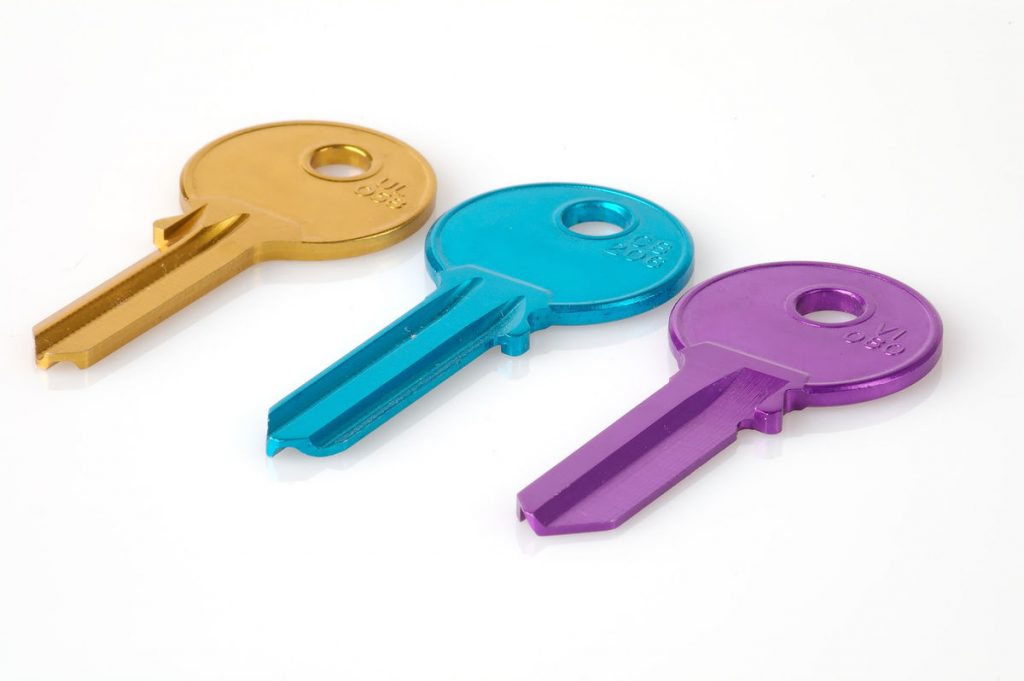While we live in a digital time when data is kept encrypted on a cloud, hard drive, or internal server, having physical keys may seem obsolete. However, that is not the case. Keys are not possible to hack and download. The biggest problem is their possible duplication but even that is controllable.

If you establish a key management system, you will create a reliable old-school security method that applies to the wired and digitally-driven workplace. This may be a tough cookie to sell, so let’s go over the benefits of a key management system and why it’s a good idea to have it in place in your company.
1. Key security means better protection of your property
Physical keys keep things secure in your facility so controlling their use will double your security measures. The key management system will make sure that only people who are authorized have access to those areas, limiting thus potential thefts and damages of your assets.
It allows you to track the keys, has insight into how long they were in certain possession, and when they were returned. This is an extra security measure you can achieve with a key management system in place and protect your valuables, as well as personnel.
2. Better control of your company assets
Keeping track of who took the keys to access certain areas is not the only benefit of a key management system. Some of your assets may need keys as well to work, as the company fleet. Control of such keys allows you to know who used those assets and for how long.
Moreover, you will be able to restrict access to those assets by defining individuals who can take the keys. Regularly changing access codes for the keys, re-evaluating authorizations, and assessing whose clearance should be revoked are important to maintaining a functional key management system. After all, no employee should be able to just take the keys and drive a company vehicle whenever they feel like it.

3. Good at preventing key losses
When a physical key gets lost, it means that not only you will have to replace the said key but also the locks it opens. This can be expensive and take time from work, especially if something you need to get the job done is behind the doors of your lost key.
To avoid this from happening, the key management system allows you to set alerts via texts and emails to supervisors informing them the keys are not returned yet. Moreover, it makes finding the keys more probable since the sooner you start looking for them the better are changes you will find them.
4. Allowing for offline access
Electronic cards and codes won’t work if the power or internal network is down. The key management system has an offline release option that will keep it operational in case this happens. You can still access physical keys and use them even though electronic security isn’t working. This is especially important for industries that depend on reliable security systems, like hospital pharmacies and police evidence management.
5. Better control of privileges for temporary employees
If your company is often hiring temporary employees, then the key management system will make it easier for you to give or revoke their access. This includes interns, cleaning services, repairmen, delivery personnel, and anyone else who needs to access certain premises in your office building.
For example, the electronic key system allows you to set an expiration date on the access or manually disable their privileges immediately if needed. Also, you can restrict what certain people can open with those keys.
6. Easy to track who accessed the keys
If you have more than one company branch, is cost-effective to have a centralized key management system at the head office. For example, you can track access to electronic key cabinets in Australia even if your company’s HQ is on the other end of the world. Since everything is digitally connected, you can easily inform appropriate persons of the access and have them handle it accordingly.
This way, you will save money on hiring additional personnel to oversee the key management in each of your offices. Regardless of that, the result will be the same — you will be able to track access to keys and keep your company, property, and staff safer.
7. Adding RFID technology to offline keys
You can still have digital control of physical keys with radio-frequency identification or RFID tags. Let’s take car keys as an example. If someone duplicates the key but doesn’t have the corresponding RFID transponder, they won’t be able to start the car. This will keep your company fleet safe from unauthorized use and theft, but the same technology can apply to other keys you use in the building.
The RFID chip can record location, use, and other features you deem necessary. However, they are not 100% secure since hackers can access them, so have this in mind when considering this type of key management.
8. Always know where the keys are
Sometimes your business depends on having keys in your hands whenever you need them. For example, if you manage a conference center, you need to open storage cabinets, conference rooms, kitchen, and other spaces your clients need. You need to do this at their request meaning that you need to know where each of the keys is at any moment.
Electronic keys are easier to control since they live digital trail when used to open the doors. However, if you work with physical keys, you can also monitor their use with access codes to their storage area. If you designate each person their own codes, you will know who took the keys and contact them to bring them your way.
The bottom line
As a business, you already have a lot to think about and security is one of those things. Since keys keep the doors locked and everything behind them safe, you can use a key management system to control who and when had access to them. It will also allow you to quickly discover their whereabouts in case of emergencies or revoke privileges to people who may potentially use them to damage or steal your assets.